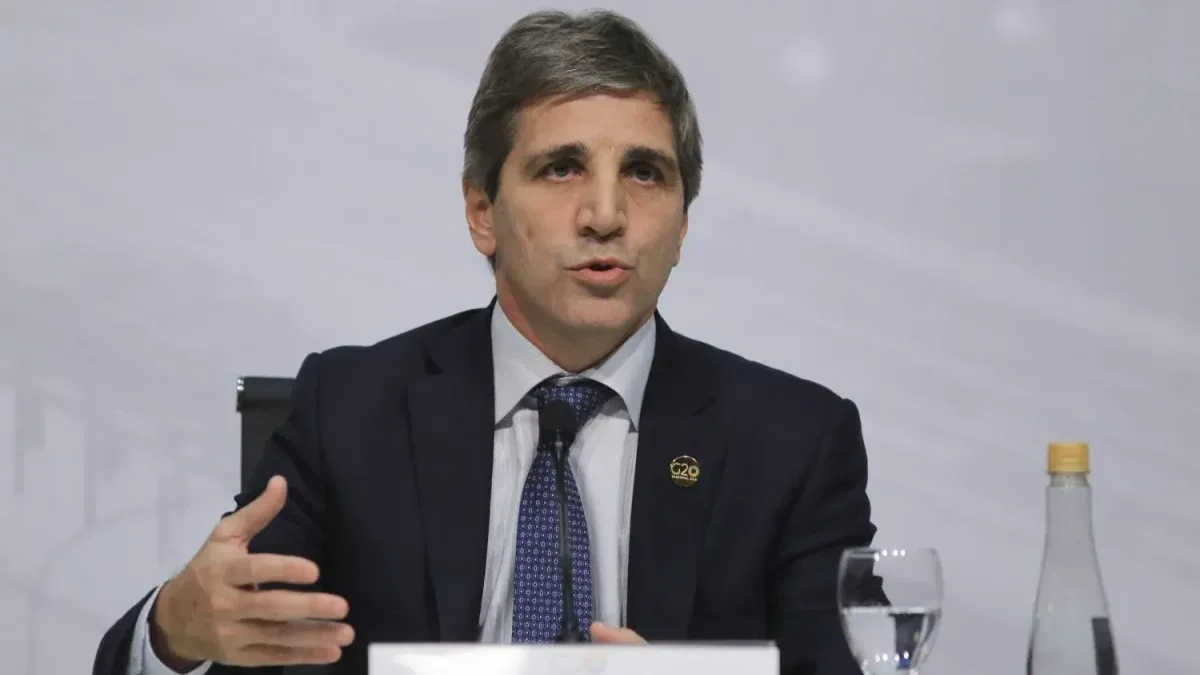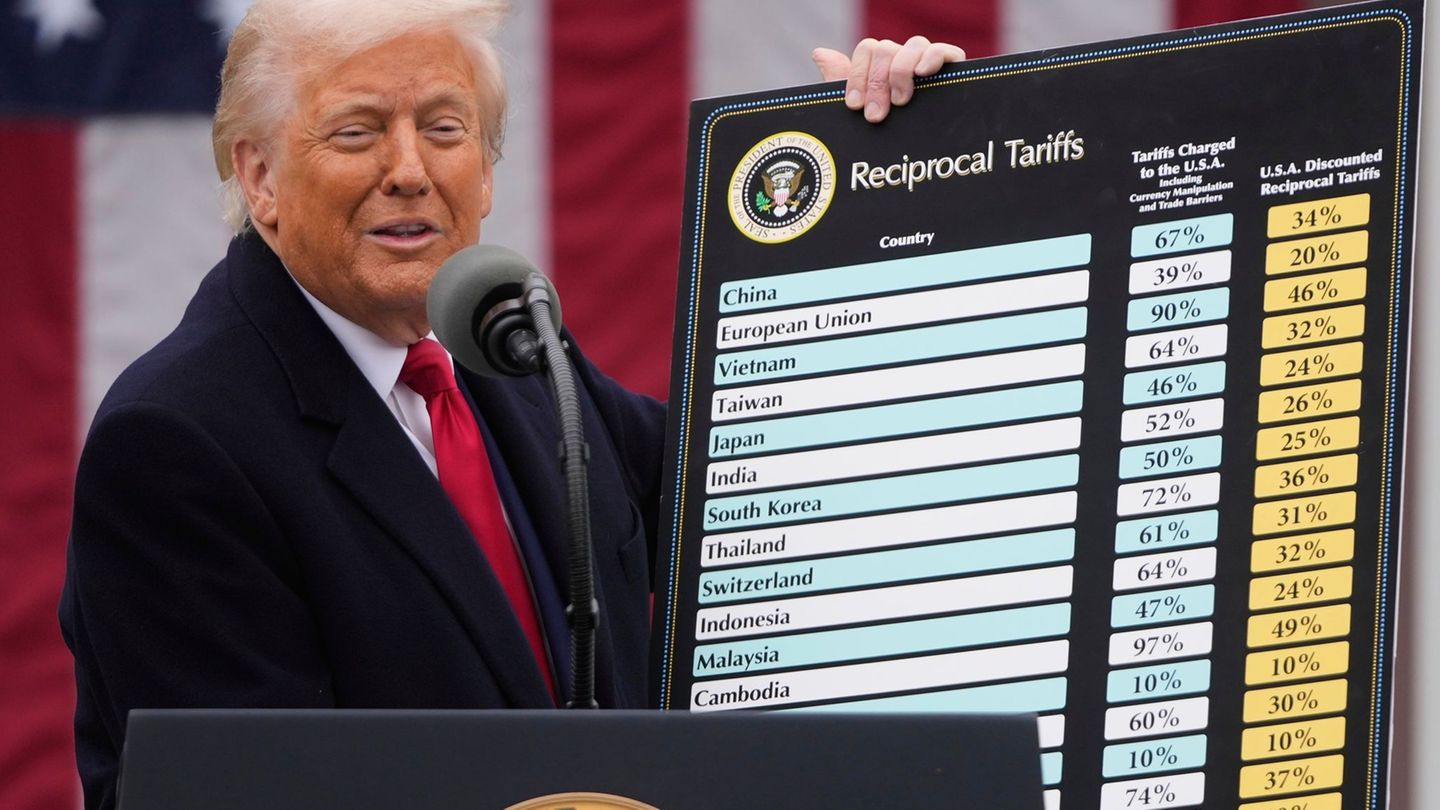The dollarization seems to be an increasingly distant scenario for the Argentine economy as the government cabinet that Javier Milei will be launched after his inauguration on December 10. With confirmation that Luis Caputo, man from the ranks Mauricio Macri, be the next Minister of Economy, the fiscal order gradual seems to be gaining strength in the neighboring country. How can it affect Uruguay this economic direction?
Argentina will not face simple months in socioeconomic terms compared to Javier Milei’s advance announcements regarding the search for zero deficit, non-issuance of money and practically total cuts in public works in a context of inflation levels even higher than the current ones. This will also have its effects on Uruguay, where it is expected that rise of the dollar in the neighboring country has a double impact: deepening of the price gap and exchange difference, on the one hand; and lower tourist flow Argentina in the face of economic deterioration.
Given this panorama already contemplated for the short term (2024) by analysts and authorities, the dollarization put forward as a pillar and objective of Milei’s economic policy still raised doubts. According to him he explained to Scope Nicolás Cichevski, economist CPA Ferrere, “In the medium or long term, dollarization exacerbates the external shocks, which can add volatility to the level of economic activity (GDP) of Argentina, which due to transitivity can have negative effects on Uruguay”.
However, news still to be confirmed on the other side of the Silver riversuggests that, for the moment, the idea of dollarizing would be relegated to another stage of the government of Freedom Advances in alliance with the PRO: confirmation of Luis “Toto” Caputo in front of the Ministry of Economy.
Caputo, Macri’s man and the symbol of moderation?
Called “the Messi of finance” by Macri, Caputo has a degree in Economics at the University of Buenos Aires (UBA) and has a long career both in the private sector—in companies such as JP Morgan, Deutsche Bank and Axis, a Common Investment Fund company—; as in the public sector, where he served as Secretary of Finance (2017-2017), Minister of Finance (2017-2018) and President of the Central Bank of the Argentine Republic (BCRA) for four months, until September 2018. All positions during the government of the PRO leader.
In Argentina He is remembered for being one of the originators of the loan with the IMF and the conditions that led to default in 2019 pesos. He was also the promoter of the 100-year bond that was placed during the administration of the former president, the main negotiator with the “vulture funds” and with the history of having reduced the Lebac -today Leliq— when he was in charge of the BCRA.
For Milei, as he expressed in an interview with the Argentine media TN, Caputo is “a person who is in conditions to be in office, with the necessary experience to dismantle the situation we have” and, if he accepts the official offer, he will be the one who defines the main economic guidelines. A no less important fact is that the uncle of Santiago Caputo —the “architect” of the electoral triumph of the libertarians”—is gradualist profile; That is, the “shock” adjustment promised by the next government may not be such.
Consequently, in Uruguay could breathe more calmly: if Argentine conditions remain stable—although on the path toward fiscal adjustment and eventual economic order—the exchange difference could begin to be reduced without this meaning a strong impact on tourism. Before dollarization in the neighboring country, Uruguayans—and the local government—are better off exchange rate unification. A more probable objective in the short term and safer in a longer time horizon.
Another piece of information that allows us to account for the moderation of the president-elect in Argentina with the incorporation of the former Secretary of Finance to his cabinet: not long ago, Caputo was the target of his criticism, calling him “irresponsible” and pointing him out as guilty of “one of the great disasters that were made in the Central Bank ”, which occurred on December 28, 2017, which led to what Milei considers the country’s economic debacle.
However, he now considers him in one of the most important positions in his government, clearly influenced by Macri’s “unconditional support.” Although the former Argentine president had already warned on his behalf that a mistake by his government was, precisely, gradualism – implying that a second term would be much more direct with the economic adjustment—; The course of economic policy under Caputo’s wing would be marked by a perspective away from “shock” that have already been pioneered by the different sectors of La Libertad Avanza.
The famous “blank slate” that allowed the alliance of the libertarians with the hard wing of the PRO could also bring closer a less radical look about the economy. In fact, the same history of Lebac reduction that was harshly criticized by Milei on previous occasions is today decisive for the future president when offering Economy to Caputo —as proof of his expertise.
Mercosur, still a mystery
Regarding what position the Milei and Caputo government will take, if they agree to lead the Ministry of Economy, regarding the Mercosur, There is still no precise information. The truth is that the former Secretary of Finance was an official during a good part of the Macri government, which never broke with the regional bloc although he was in favor of a more flexible opening.
The statements of the Paraguayan president can also be taken as a positive sign in this sense. Santiago Pena, who praised Milei and assured that his “great desire is relaunch Mercosur” under the pro tempore presidency of Paraguay that begins on December 7. Although this summit will still have the presence of Alberto Fernández at the head of the Argentine government, Uruguay You are beginning to see more allies within the bloc in pursuit of better negotiating conditions for countries bilaterally.
Source: Ambito




